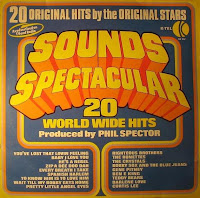We watched the movie Once (2006) at the weekend. A modern-day musical set in Dublin, it presents a week in the lives of the un-named lead guy (Glen Hansard from Irish band The Frames) and girl (Marketa Irglova). Hansard is a hoover repair man writing folksy songs and busking in his spare time while trying to get over a break-up. Irglova is an Eastern European immigrant who happens to be an exceptional pianist. After a chance encounter and over the course of the ensuing week she instils a level of faith and confidence in Hansard's songs, adding piano and direction to his songs, and ultimately encouraging him to recruit a band of fellow street musicians and to take a small loan to finance a weekend recording session. It's a simple, yet highly effective film; more of a documentary or extended music video, and is principally a vehicle for Hansard's emotionally fraught songs which are somewhere between the frailty of Damien Rice, the depth of Talk Talk's Mark Hollis and the rapturous peaks of Arcade Fire's Win Butler. Irglova on the other hand has a fragile, delicate voice best heard on the classically-informed ballads she performs here.

I don't think I've ever downloaded the soundtrack to a movie while I've still been watching it, but such is the pull of songs like 'When Your Mind's Made Up' and 'Lies', songs filled with disappointment, negativity and an emotional depth that's hard not to warm to absolutely. Hansard also lightens the mood with the wry Loudon Wainwright III-esque 'Broken Hearted Hoover Fixer Sucker Guy' and the lo-fi synth pop piece 'Fallen From The Sky'. Great movie, great soundtrack.
While our two daughters were eating dinner at the weekend, and desperate for a break from The Wiggles on constant repeat, I grabbed the only iPod which was handy, which happened to be Mrs S's. Doing this always fills me with dread as it's in major need of a tidy-up, and also my music collection is significantly under-represented therein. So I stuck on Phil Spector's Sounds Spectacular (1974) compilation, which I recorded from my parents' vinyl copy. The songs are obviously familiar from any other Wall Of Sound compilation, as is the distinctive Spector sound, but we noticed that the transfer from vinyl gave the songs a much richer warmth and authenticity more befitting the songs than the comparatively clinical re-masters on the infinitely more expensive Back To Mono boxset. An obvious point to vinyl aficionados, I know, but one which struck me unexpectedly in that moment. And that reminded me that time was when I used to mine the Smith record boxes each week to turn up some long forgotten vinyl purchase to write about in this blog; I must start doing that again.

On a rare tentative visit to my least favourite music shop, HMV, at the weekend, I was suckered into one of their periodic 'two for a tenner' deals on CDs, and walked away with Bad Lieutenant's Never Cry Another Tear. Bad Lieutenant is a three-piece band consisting of sometime New Order guitarist Phil Cunningham, Jake Evans and New Order / Joy Division / Electronic front-man Bernard Sumner.

A sticker attached to the shrinkwrap proclaimed that 'this sounds more vital than anything New Order have done since 'Crystal'', which irked me somewhat. 'Crystal', undeniably a great track, was on New Order's penultimate album so in terms of making out that this is a return to some sort of classic period New Order sound the scope seems torridly short-sighted in its range. Typical NME.
Still, what is correct is that Never Cry Another Tear is brilliant. More akin to the second two Electronic albums (Raise The Pressure and Twisted Tenderness), with plenty of acoustic guitars and genteel lyrics, the album also finds time to throw in Power, Corruption And Lies-era synths on a few of the faster-paced songs. Sumner shares vocal duties with Evans while Stephen Morris adds drums to a couple of tracks, and Blur's Alex James drops in on bass duties occasionally. The album was released back in October of last year, and I'm annoyed with myself for not buying it sooner, especially since it's reminded me just how much I love Sumner's voice.





